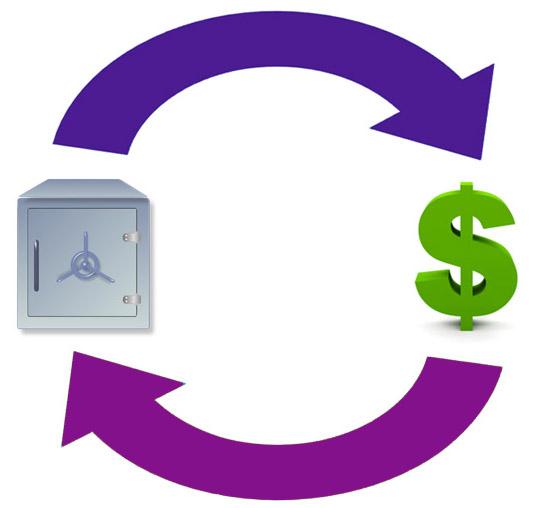
Do you know how Chicago became known as the “Windy City”? Here’s a hint: it has nothing to do with meteorology. The nickname was popularized by Charles A. Dana, an editor of the New York Sun who used it as an innuendo to suggest Chicago’s politicians were windy with hot air. Illinois is home of the Sears Tower, enormous lakes and one of the greatest cities in America, which also happens to have windy weather. With rent amounts increasing (almost 3% over the last 3 years) vacancy rates on the decline, and fairly relaxed landlord-tenant laws (outside Chicago), Illinois could easily be a rental investment mecca.
Buyer beware, however! Before investing in rentals in Chicago, understand that Chicago has its own rental laws in the Municipal Code of Chicago Chapter 5-12.
At a Glance:
Late Fees: There are no amount restrictions but what is chosen must put in a lease.
Security Deposit: No limit is placed on the amount of the security deposit that may be charged.
Returned Payment Fee Limit: $25 with written demand providing 30 days to pay.
Notice to Enter: Illinois is silent in its statutes regarding notification before entering.
Late Fee/Returned Check Fee:
There are no statutes that limit how much a late fee may be. However, it must not be considered so high that it could be considered a penalty. Therefore, a late fee should be related to any costs incurred for the late payment. Additionally, the late fee should be written into the lease. Generally, 5% is a good rule of thumb as being reasonable. This is what is permitted under Chicago’s ordinance as well.
Security Deposits:
There is no limitation on the amount that may be collected for a security deposit including pet deposits. The payment of interest is required only when a landlord owns twenty-five units or more and the deposit is held for longer than six months.
After the tenant vacates an Illinois rental, the landlord must return the security deposit in accordance with the Illinois Security Deposit Act. Basically this specifies that the deposit must be returned as follows:
- If there is any damage or repairs or amounts deducted, an itemized written statement must accompany any monies leftover and sent to the tenant within forty-five days.*
- If there are no deductions made, then the security deposit must be returned in full within thirty days.*
*This only applies to residential real estate containing more than five units, however, it is probably a good practice all around to avoid unnecessary litigation.
**Remember, Chicago has different rules and regulations!
Maintenance:
In the state of Illinois, the landlord has the responsibility of keeping the rental unit fit to live in and in compliance with all local health and housing codes. There is also a requirement that the landlord change the entrance locks in between tenants. For any units located on a second floor or below, disclosure must be made with regards of any presence of Radon. Each locality has its own requirements and it is very important to check with local health and housing offices to be informed.
Right of Entry:
Illinois as a state has no written landlord tenant law specifying that a landlord must give advance notice before entering an apartment to make repairs, show it, or for any reason. Now because the law is silent does not mean there will not be consequences for abusing this right. Be careful and it does not hurt to have a paper trail of advance notice where there is no emergency.
Notice to End Lease:
Illinois has the following minimum requirements for notice in order to terminate a lease agreement. Sixty days for a yearly lease, thirty days for month to month lease and week to week leases would require at least seven days.
Eviction:
Have you ever heard of the term self-eviction? This is when a landlord takes into their own hands the removal of a tenant. Some examples include changing the locks, removing tenant’s personal property or shutting off utilities. This is not permitted at all in the state of Illinois. In order to legally remove a tenant in breach of his lease, first proper notice must be given.
- Non-payment of rent: 5-day notice
- Other breaches or violations: 10-day notice
Notices must be provided to a tenant by personally handing it to the tenant, or someone else who resides in the rental unit who is over the age of 13. Or the notice may be mailed by either certified or registered mail. Notices may not be posted or left at the rental in a conspicuous location unless there is evidence that the tenant has abandoned the property and no person is residing there.
*Keep a copy for your records along with a notarized certificate of service which is required to be filed with the court.
If a tenant fails to comply and the notice period ends, the landlord can then go to the courthouse and file a Forcible Entry and Detainer (F.E.D.).
**Chicago’s eviction process may differ.
Questions? Ask an Illinois Attorney!
Have questions about Illinois’ landlord-tenant laws? We have you covered. Ask in the box below, to have your questions answered by living, flesh-and-blood attorneys!
DISCLAIMER: Wellspring Financial LLC DBA SparkRental.com is for informational purposes only! Any information, legal or otherwise is provided “as is” without any representations, truth, accuracy, exactness or warranties, expressed or implied. Any data, form, or information provided shall NOT be construed or taken to be legal advice. You must NOT rely on any data, form, or information on this website as an alternative to obtaining sound, legal advice from a licensed or professional legal service provider.
















